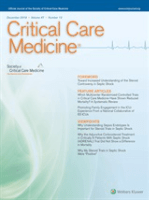
CRITICAL CARE MEDICINE
Scope & Guideline
Pioneering Discoveries for Optimal Patient Outcomes
Introduction
Aims and Scopes
- Clinical Management of Critical Illness:
The journal covers a wide range of topics related to the clinical management of critically ill patients, including advanced monitoring, therapeutic interventions, and innovative care pathways. - Sepsis and Infection Management:
A significant focus is placed on the management of sepsis, including early recognition, treatment protocols, and the role of biomarkers in diagnosis and prognosis. - Respiratory Support and Ventilation Strategies:
Research on various ventilation strategies, including non-invasive ventilation, high-flow nasal cannula, and ECMO, is prevalent, emphasizing improved oxygenation and patient outcomes. - Multidisciplinary Approaches to Care:
The journal emphasizes collaborative care models involving interdisciplinary teams to enhance patient management and support systems in critical care settings. - Psychosocial Aspects of Critical Care:
Articles exploring the psychological impacts on both patients and families during and after critical illness, including post-intensive care syndrome and bereavement support. - Quality Improvement Initiatives:
The journal publishes studies focused on quality improvement measures in ICU settings, aiming to enhance patient safety, reduce complications, and improve care delivery. - Technological Innovations in Critical Care:
Research exploring the integration of technology such as telemedicine, machine learning, and point-of-care ultrasound in critical care practice.
Trending and Emerging
- Machine Learning and Predictive Analytics:
There is a growing trend towards utilizing machine learning algorithms and predictive analytics to improve patient outcomes, particularly in sepsis management and risk stratification. - Telemedicine and Remote Monitoring:
The incorporation of telemedicine and remote monitoring technologies has gained traction, especially in response to the COVID-19 pandemic, highlighting its role in enhancing patient care and safety. - Integrated Care Models:
Emerging research emphasizes integrated care models that focus on the continuum of care from ICU to post-acute settings, aiming to improve long-term outcomes for survivors of critical illness. - Patient-Centered Approaches:
A notable trend is the shift towards patient-centered care models, which consider the preferences and values of patients and their families in treatment decisions. - Diversity and Equity in Critical Care:
There is an increasing focus on addressing health disparities and promoting equity in critical care, reflecting a broader societal push towards inclusivity in healthcare. - Psychosocial Interventions in Critical Care:
Research into the psychological well-being of both patients and healthcare providers is on the rise, particularly in understanding the impacts of critical illness and the care environment. - Novel Therapeutic Agents and Protocols:
Emerging therapies, particularly in the context of COVID-19, are becoming a significant area of interest, with studies focusing on the efficacy of new pharmacological agents and treatment protocols.
Declining or Waning
- Traditional Sedation Practices:
There is a noticeable decline in research focusing solely on traditional sedation practices, as the field shifts towards more nuanced approaches that incorporate multimodal analgesia and sedation strategies. - Single-Agent Pharmacotherapy in Critical Care:
Research on the efficacy of single-agent pharmacotherapy appears to be waning as studies increasingly explore combination therapies and personalized medicine approaches. - Basic Ventilation Techniques:
The focus on basic mechanical ventilation techniques has decreased, with more emphasis being placed on advanced strategies such as adaptive ventilation and individualized care protocols. - General ICU Protocols:
There is a reduction in studies examining general ICU protocols, as more research is directed towards specific populations and tailored interventions based on patient characteristics. - Efficacy of Colloids in Resuscitation:
Research on the use of colloids for fluid resuscitation is less frequent, possibly due to evolving guidelines favoring crystalloids and the need for more evidence-based approaches.
Similar Journals
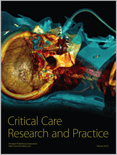
Critical Care Research and Practice
Advancing knowledge in critical care for a healthier tomorrow.Critical Care Research and Practice is a distinguished open-access journal published by HINDAWI LTD that has been at the forefront of disseminating vital research in the fields of critical care and intensive care medicine since its inception in 2010. With an impressive Q2 ranking in its category and positioned in the top 63rd percentile according to Scopus rankings, the journal serves as a critical platform for researchers, practitioners, and students aiming to advance their understanding and improve outcomes in intensive care settings. Based in Egypt, the journal's breadth encompasses diverse aspects of critical care, including innovations in treatment protocols, evidence-based practices, and the latest advancements in patient care strategies. Through its commitment to open access, Critical Care Research and Practice ensures that high-quality research is readily available to a global audience, fostering collaboration and knowledge sharing across the medical community.
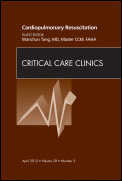
CRITICAL CARE CLINICS
Delivering Cutting-Edge Research in Critical CareCRITICAL CARE CLINICS is a premier academic journal published by W B SAUNDERS CO-ELSEVIER INC, focusing on advancing knowledge in the fields of Critical Care and Intensive Care Medicine. With an impressive impact factor and designated as Q1 in both Critical Care and Intensive Medicine categories, this journal is a leading resource for healthcare professionals, researchers, and students alike. Since its establishment in 1985, it has evolved into an essential conduit for cutting-edge research, clinical insights, and evidence-based practices, bridging the gap between theoretical understanding and practical application in critical care. The journal maintains a high ranking, being positioned 15th of 110 in its category according to Scopus, with a noteworthy percentile of 86, indicating its influence and relevance in contemporary medical discourse. Although the journal is not open access, it provides valuable content for those dedicated to enhancing patient care and advancing the science of critical medicine. Its commitment to excellence makes it a vital resource for anyone engaged in the dynamic field of critical care.
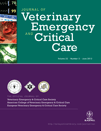
JOURNAL OF VETERINARY EMERGENCY AND CRITICAL CARE
Connecting knowledge and practice in animal critical care.JOURNAL OF VETERINARY EMERGENCY AND CRITICAL CARE, published by WILEY, is a leading journal in the field of veterinary science, specifically focusing on emergency medicine and critical care for animals. With an impact factor that underscores its significance in the field, this journal serves as a crucial resource for veterinary professionals, researchers, and students dedicated to advancing the care of animals in critical conditions. Since its inception in 1991, the journal has continually contributed to the knowledge base and methodological advancements in veterinary emergency practices, consistently ranking in the Q1 category for veterinary sciences, as per the latest Scopus Ranks. Located in the United Kingdom, the journal is committed to disseminating high-quality, peer-reviewed research that addresses the challenges and innovations in veterinary critical care. With its goal to enhance clinical outcomes through evidence-based practices, the JOURNAL OF VETERINARY EMERGENCY AND CRITICAL CARE remains an essential platform for scholarly communication and collaboration in veterinary medicine.
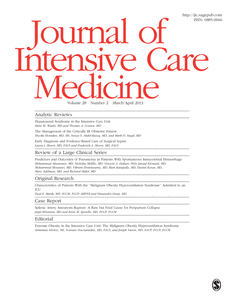
JOURNAL OF INTENSIVE CARE MEDICINE
Driving Evidence-Based Solutions in Intensive MedicineJOURNAL OF INTENSIVE CARE MEDICINE, published by SAGE PUBLICATIONS INC, is a leading peer-reviewed journal dedicated to advancing the field of critical care and intensive medicine. With an ISSN of 0885-0666 and an E-ISSN of 1525-1489, this esteemed journal showcases innovative research, clinical practices, and synthesis of knowledge that informs the complexities of patient care in intensive settings. Recognized for its exceptional impact, it holds a prestigious Q1 ranking in the Critical Care and Intensive Care Medicine category, landing in the upper 15% of its field according to Scopus rankings. Celebrating over three decades of publication since its inception in 1986, the journal serves both as a resource for seasoned professionals and a platform for emerging researchers eager to contribute to evidence-based practice. Although not open access, the journal ensures that critical insights and advancements are accessible to a broad audience, fostering a collaborative environment that is essential for the evolution of intensive care protocols and the enhancement of patient outcomes. With its commitment to excellence, the JOURNAL OF INTENSIVE CARE MEDICINE stands out as an invaluable resource that continues to shape the future of healthcare in critical domains.
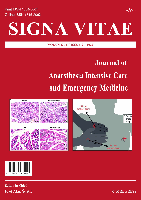
Signa Vitae
Elevating standards in intensive care and emergency practices.Signa Vitae is a distinguished academic journal published by MRE PRESS, focusing on critical care, intensive care medicine, and emergency medicine. Established in 2008 and running through 2024, this journal serves as an essential conduit for the dissemination of innovative research and clinical practices in these dynamic fields. Based in Croatia, Signa Vitae is indexed in Scopus, highlighting its importance within the scholarly community, boasting respectable quartiles with a Q3 ranking in both Critical Care and Intensive Care Medicine and Emergency Medicine as of 2023. Although it operates under a traditional access model, the journal aims to enhance knowledge sharing and interdisciplinary dialogue among researchers, healthcare professionals, and students globally, addressing the urgent challenges and advancements in patient care. By providing a platform for high-quality studies and reviews, Signa Vitae continues to advance the conversation and practice within critical and emergency medicine.
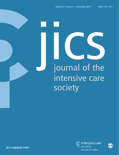
Journal of the Intensive Care Society
Shaping the Future of Intensive CareThe Journal of the Intensive Care Society, published by SAGE Publications Ltd, serves as a premier platform for disseminating cutting-edge research and advancements in the field of critical care and intensive care medicine. With its ISSN of 1751-1437, this influential journal holds a distinguished position, currently ranked in the Q2 category for Critical Care and Intensive Care Medicine and Q1 in Critical Care Nursing, showcasing its significant impact within the academic community. The journal caters to a diverse audience including researchers, healthcare professionals, and students, by providing insightful articles that inform best practices and enhance patient care in intensive settings. It boasts impressive Scopus ranks, listed as 4th out of 27 in Critical Care Nursing and 32nd out of 110 in the broader category of Critical Care Medicine, reflecting its commitment to excellence. With content available from 2010 through to 2024, the Journal of the Intensive Care Society is essential for those looking to stay at the forefront of critical care innovation and research.
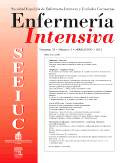
Enfermeria Intensiva
Advancing Critical Care Through Innovative Nursing InsightsEnfermeria Intensiva, published by Elsevier Science Inc, is a highly regarded journal in the fields of Advanced and Specialized Nursing as well as Critical Care and Intensive Care Medicine. With an impressive track record spanning from 1994 to 2024, this journal serves as a vital resource for researchers, healthcare professionals, and students dedicated to enhancing the quality of patient care in critical settings. It holds a coveted Q2 ranking in multiple nursing categories as of 2023, reflecting its influence and contribution to the ongoing discourse in nursing practices. Although currently not an open access journal, it continues to provide intricate insights into both fundamental skills and specialized techniques essential in intensive nursing care. By bridging research and practical application, Enfermeria Intensiva plays a pivotal role in advancing knowledge and improving outcomes in critical care environments.

ANASTHESIOLOGIE & INTENSIVMEDIZIN
Pioneering Research for Tomorrow's Medical ChallengesANASTHESIOLOGIE & INTENSIVMEDIZIN is a peer-reviewed journal dedicated to the fields of anesthesiology, critical care, and intensive medicine. Published by AKTIV DRUCK & VERLAG GMBH in Germany, this journal has been an essential resource in the medical community since its inception in 1978. With a current impact factor placing it in the Q3 quartile in both anesthesiology and critical care categories, it serves as a platform for disseminating cutting-edge research and innovative practices. The journal invites contributions that enhance the understanding of pain management, perioperative care, and intensive treatment methodologies. Although not open access, it remains committed to advancing knowledge and improving patient outcomes. With a strong focus on practical applications, ANASTHESIOLOGIE & INTENSIVMEDIZIN is invaluable for researchers, clinical practitioners, and students seeking to deepen their expertise in these crucial areas of healthcare.

Acute and Critical Care
Fostering global collaboration in critical care research.Acute and Critical Care is a leading open-access journal dedicated to the fields of critical care and intensive care medicine, published by the Korean Society of Critical Care Medicine. Since its inception in 2014, this journal has provided a platform for the dissemination of high-quality research, reviews, and innovative practices aimed at improving patient outcomes in acute medical situations. With an impressive Q2 ranking in both Critical Care and Intensive Care Medicine and in Critical Care Nursing for the year 2023, it is recognized as an influential source of knowledge among professionals in the field. The journal is indexed in Scopus, with notable rankings—7th out of 27 in Critical Care Nursing and 48th out of 110 in Critical Care and Intensive Care Medicine—highlighting its credibility and relevance. Situated in Seoul, South Korea, Acute and Critical Care aims to foster collaboration and engagement within the global community of researchers, presenting cutting-edge clinical applications and advancements in patient care.

Anesteziologie a Intenzivni Medicina
Bridging Research and Practice in Intensive MedicineAnesteziologie a Intenzivni Medicina is a pivotal Czech journal dedicated to the fields of anesthesiology, critical care, and intensive medicine. Published by SOLEN SRO, this journal plays a crucial role in disseminating essential research and advancements in these vital areas of medicine. With the ISSN 1214-2158 and E-ISSN 1805-4412, it has been in publication since 2003, showcasing a wealth of knowledge that is particularly relevant to the clinical practices in the Czech Republic and beyond. Although currently classified in the Q4 quartile for both anesthesiology and critical care disciplines, the journal is committed to fostering high-quality research and clinical discussions. Researchers and healthcare professionals can benefit from its content that encompasses various aspects of patient care and procedural developments. This journal is a valuable resource for those aiming to stay updated within the fast-evolving landscape of anesthesiology and intensive medicine, despite its limited open access options. As it progresses towards its 2024 convergence year, Anesteziologie a Intenzivni Medicina strives to elevate its impact and relevance in the medical community.